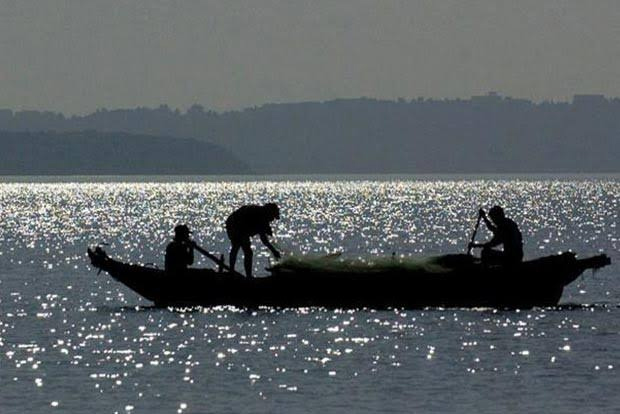Begin typing your search...
Cage culture may promote privatisation of marine resources, fear fishermen
The Union Budget came as a big disappointment for fishermen not just because of the absence of new schemes for the sector, but for the fear of promoting cage culture which will indirectly promote privatisation of marine resources.

Chennai
In the Budget, read by Union Finance Minister Nirmala Sitharaman, on Saturday, there were only three points on fisheries sector, but according to fishermen, all three points were aimed against traditional fishermen.They claim that the Union government is intending to promote private players by focussing on cage culture to increase fish production.
According to the Budget, government proposes to raise fish production to 200 lakh tonnes and to promote growing of algae, seaweed and cage culture. Centre has also announced to promote fishery through 3,477 Sagar Mitras and 500 fish farmer producer organisations, which according to fishermen is directly promoting private players.
Speaking to DT Next, Dr Kumaravel, General Secretary, Vangakadal Meen Thozhilalar Sangam (VMTS), said, “Budget was a complete disappointment for fishermen as no new schemes were announced for them. Apart from the new schemes, the Centre is vigorously pushing for privatisation by its ambitious fish production targets.” Kumaravel also said that the target of 200 lakh tonnes can be achieved only by introducing private players and the Union government is for privatisation of fisheries. Even the setting of cages is possible only by private players.
“The National Mariculture Policy of 2019 was enacted with the view of increasing production of marine resources. In the policy, not just fishermen, but anyone can setup the cage culture which is like leasing the sea and the marine resources to private players,” said Kumaravel.
Similarly, K Bharathi, president, South Indian Fishermen Welfare Association, said the Union government will face a huge protest from fishing community for trying to privatise marine resources. “Traditional fishermen prefer fishing at the sea, but marine resources are left in the hands of private which reduces fishermen to a marginalised community in their own land. In the name of Blue Economy, the Centre is trying to wipe out fishermen from coastal areas and wants to place private players,” said Bharathi.
Researchers said that in the name of Blue Economy, India with the association of world countries has completely marginalised the fishing community. “Fishing is the livelihood of fishermen, but the Centre, through Blue Economy, has turned fishing into a business to bring-in private players and to uproot fishermen from their traditional hamlets. In next five years, there will not be any fishermen but they will be reduced as fishing farmers,” told J Jones Thomas Spartegus, Doctoral Fisheries Research Scholar, to this paper. Jones calls Blue Economy as a way for ethnic cleansing of fisheries identity.
“Blue Economy includes promoting offshore exploration, setting up of offshore windmills, promoting tourism and other economic activities and as fishermen would be a hindrance to their expansions the Centre is promoting cage culture, allowing private players to exploit marine resources,” said Jones. He further said that the Centre wants fishermen to be producers rather than to remain as fishermen.
Visit news.dtnext.in to explore our interactive epaper!
Download the DT Next app for more exciting features!
Click here for iOS
Click here for Android
Next Story



